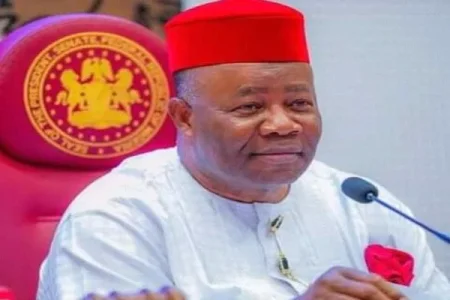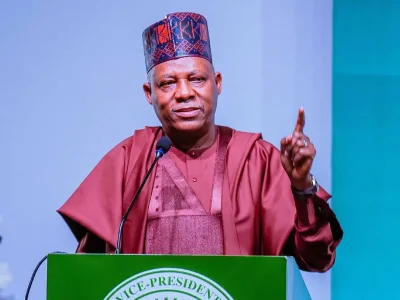
The Nigerian Senate has approved a bill to reintroduce the old national anthem, 'Nigeria, We Hail Thee,' following a report from the judiciary committee. The decision has sparked mixed reactions, with supporters emphasizing its emotive value while critics question its priority amidst pressing national issues.
In a controversial decision that has reignited debates over national identity and patriotism, Nigeria's Senate has passed a bill seeking to reinstate the country's former national anthem, "Nigeria, We Hail Thee," discarding the current one that has been in place for decades.
The upper legislative chamber approved the "National Anthem Restoration Act" after considering a report by Senator Tahir Monguno, chair of the judiciary committee. Monguno dismissed objections raised by the Attorney-General of the Federation, Lateef Fagbemi, who had called for a wider process to change the anthem.
"The proposed bill is important," Monguno stated, setting the stage for a heated debate over the symbolic weight of national anthems and their role in shaping a nation's collective consciousness.
Supporters of the bill, primarily from the ruling party, argue that the former anthem, with its stirring lyrics and rousing melody, better captures Nigeria's spirit and values, serving as a powerful rallying cry that has united citizens through times of turmoil.
"The old one we are seeking to bring back evokes emotions," said Senator Victor Umeh, representing Anambra Central. "A national anthem is supposed to be motivational. There is motivation in the old anthem."
Nigerians, however, have condemned the move as a thinly veiled attempt to appease certain elements and erase the progress and unity that have defined Nigeria's journey. "By discarding our current anthem, we risk erasing the hard-won progress and unity that have defined our nation's journey," warned a vocal opponent of the measure, who spoke on condition of anonymity.
The bill now heads to the House of Representatives for further deliberation, setting the stage for what promises to be an intense debate over the symbolic weight of national anthems and their role in shaping a country's collective consciousness.




